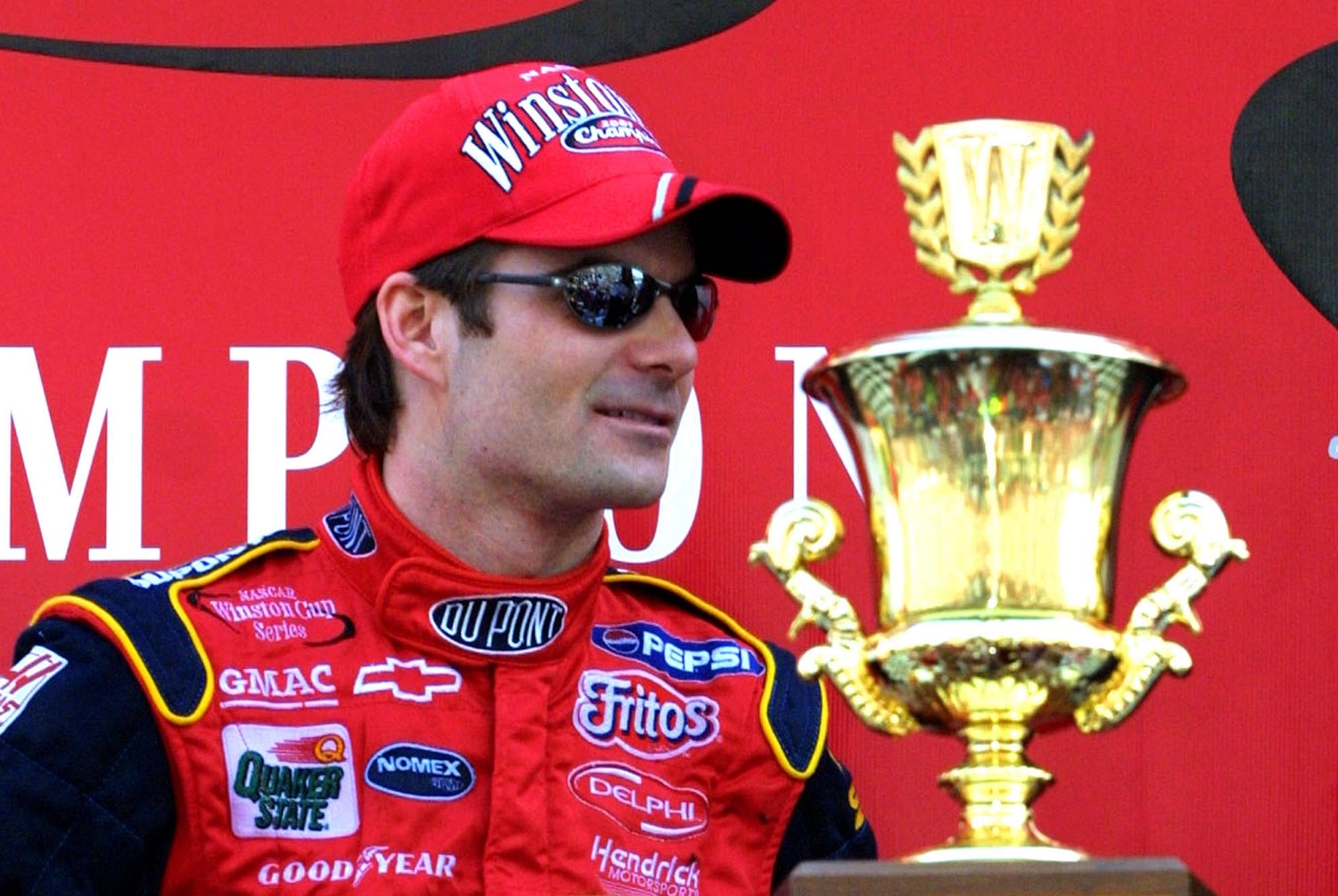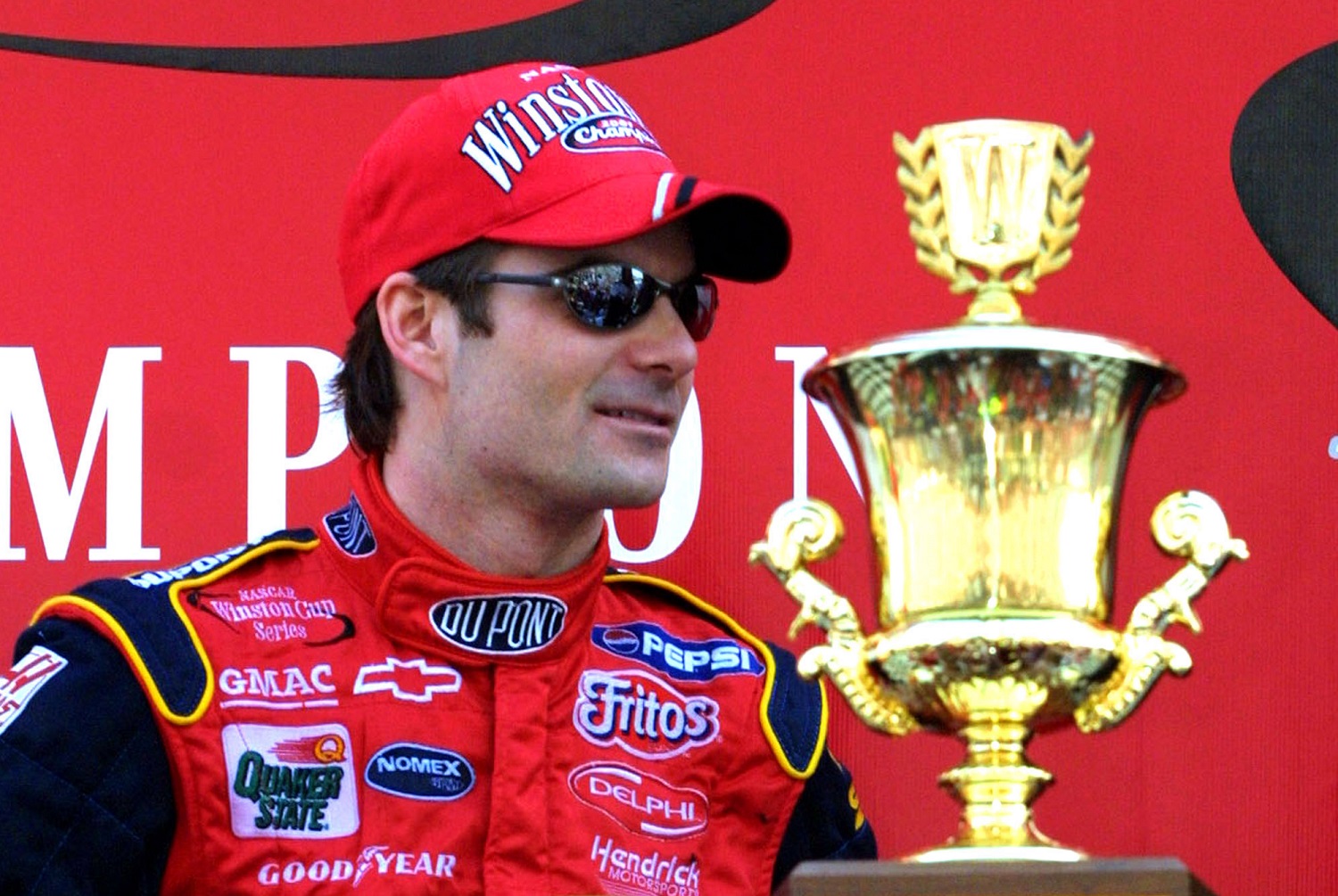NASCAR
Jeff Gordon Won His Final Championship in the Last NASCAR Season to End After Thanksgiving

NASCAR and Thanksgiving weekend racing go together like peanut butter and mustard nowadays. It’s been that way since Hall of Famer Jeff Gordon won his fourth and final Cup Series championship, but NASCAR thought it put an end to late-November racing many years beforehand.
It took truly unique – and tragic – circumstances to make it happen for the first time in 27 years.
The 1974 NASCAR season ended three days after Thanksgiving

The modern era of NASCAR, beginning in 1972, cleaned up several aspects of the sport, including moving away from numerous short tracks and lopping a third of the races from the schedule. That brought an end to the common practice of wrapping up the racing season in December.
That’s not to say everything ran smoothly, and the 1974 season was a textbook example beginning with half the races being shortened by 10% due to the oil embargo than began in late 1973. That season also ushered in a new points system that allowed David Pearson to finish third in the standings despite competing in only 19 of 30 races. In another twist, NASCAR tacked a new race onto the schedule five weeks after the presumed end of the schedule.
That race, the Los Angeles Times 500, ended with Bobby Allison taking the checkered flag three days after Thanksgiving. Still, Richard Petty won the season championship by a comfortable 5,037.75-4,470.3 margin over Cale Yarborough.
Jeff Gordon completed his fourth title season the day after Thanksgiving
Twenty-seven years after Bobby Allison won at Ontario Motor Speedway, NASCAR experienced what it likely hopes will be its last post-Thanksgiving race. On Nov. 23, 2001, Robby Gordon won the New Hampshire 300 over Sterling Marlin and Bobby Labonte.
Though he finished 15th that day after starting on the pole, Jeff Gordon walked away with his fourth Cup Series championship trophy, outdistancing Tony Stewart in points, 5,112-4,763. In fact, Gordon clinched the crown the previous weekend at Atlanta Motor Speedway.
As had been the case in 1974, the final race wasn’t originally scheduled to be the final race. However, the circumstances in 2001 were completely different.
On Sept. 11, 2001, three days after Ricky Rudd triumphed at Richmond International Raceway, terrorists hijacked four jet airliners. Three of them crashed into the World Trade Center towers or the Pentagon, and the other crashed on the terrain in Pennsylvania. The shocking attack brought the country to a stop, and NASCAR postponed its Sept. 16 race in Loudon, New Hampshire.
Since there were no remaining open dates on the original schedule, NASCAR moved the New Hampshire race to the end of the season, five days after Atlanta.
Other lasting memories from the 2001 season
RELATED: That Good Samaritan After Phoenix Raceway Closed Down Was Jeff Gordon
More than anything else, fans will recall the 2001 NASCAR Cup Series season as the one that began with the death of Dale Earnhardt Jr. in a wreck on the final lap of the Daytona 500. Kevin Harvick replaced The Intimidator in the Richard Childress Racing lineup and went on to earn the Rookie of the Year Award by winning twice and finishing ninth in points.
Anyone sitting through the just-completed 2022 season would be interested to know that 2001 set a Cup Series record with 19 drivers winning races. First-timers included Harvick, Michael Waltrip (in the Daytona 500), and Robby Gordon. Though winless in three starts, future seven-time series champion Jimmie Johnson made his Cup Series debut.
Got a question or observation about racing? Sportscasting’s John Moriello does a mailbag column each Friday. Write to him at [email protected].











